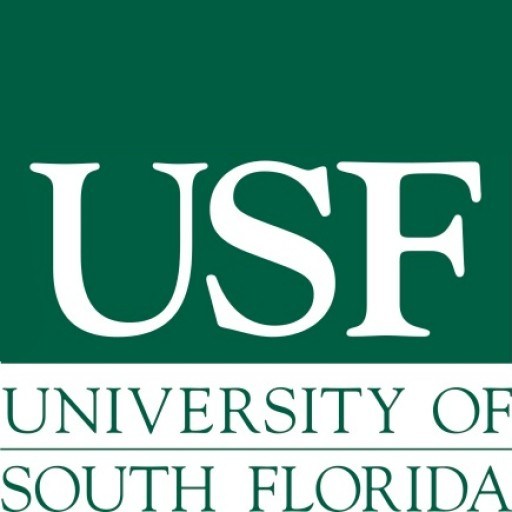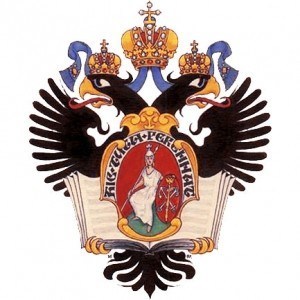Photos of university / #uchicago
Latin American and Caribbean Studies at The University of Chicago offers an interdisciplinary and comprehensive exploration of the diverse and dynamic regions of Latin America and the Caribbean. This program is designed to provide students with a deep understanding of the historical, cultural, political, social, and economic developments that have shaped Latin America and the Caribbean from pre-Columbian times to the present day. Through a combination of rigorous coursework, critical analysis, and engaging research opportunities, students will develop a nuanced perspective on the complex issues facing these regions in a global context.
The curriculum emphasizes an integrative approach, drawing on disciplines such as history, anthropology, political science, literature, economics, and visual arts. Students have the flexibility to tailor their studies to align with their specific interests, whether that be Latin American politics, indigenous cultures, economic development, social movements, or literature and visual arts. The program encourages comparative analysis and promotes understanding of the interconnected histories and contemporary challenges faced by Latin American and Caribbean societies.
Students enrolled in Latin American and Caribbean Studies will have access to a distinguished faculty committed to innovative research and teaching. They will benefit from the university’s extensive resources, including archives, libraries, and partnerships with Latin American institutions. The program also offers opportunities for fieldwork, internships, and participation in conferences, fostering experiential learning and professional development. Graduates of the program are well-equipped for careers in academia, government, international organizations, NGOs, journalism, and cultural institutions, as well as for further graduate studies.
Whether students wish to pursue a broad regional understanding or focus on specific themes or countries, the Latin American and Caribbean Studies program provides a rich, challenging, and collaborative environment for intellectual growth and engagement with one of the most vibrant parts of the world. With its emphasis on interdisciplinary approaches and real-world applications, this program prepares students to contribute meaningfully to scholarship, policy, and cultural understanding of Latin America and the Caribbean.
To satisfy the coursework required for an MA in Latin American and Caribbean Studies, students must complete the following:
The MA Proseminar in Latin American Studies
Through the MA Proseminar, the required common core of the master’s program, students gain an introduction to the variety of disciplinary approaches, discourses, and foci that fall under the large rubric of Latin American Studies. The Proseminar introduces students to specialists in the field at the University of Chicago and to the research and investigation in which they are involved. Led by the Post-doctoral Lecturer in Latin American Studies, the Proseminar meets during the Autumn and Winter quarters.
5 Latin American Content Courses
Each quarter CLAS compiles a list of University-wide courses with Latin American content. Courses which focus on disciplinary, methodological or comparative topics (such as International Relations Theory or Indigeneity) may also be counted toward this requirement, provided the student completes a paper or other major project treating a Latin American theme.
3 Disciplinary Elective Courses
These courses may have Latin American content, but they are often taken in order to gain a specific disciplinary grounding, to explore a particular theoretical framework, or to develop skills in a particular research methodology. Non-degree graduate level courses taken and completed at the University prior to admission to the master's program may be used in fulfillment of elective requirements, upon approval of the Program Advisor.
Credits towards the Master of Arts in Latin American Studies must be taken at the graduate level (courses designated as 30000 or above). However, certain lower level courses may be accepted, at the discretion of the Program Advisor.
THE MASTER'S PAPER
In addition to the course requirements outlined above, every master's degree candidate is required to submit a master's paper. This paper is meant to demonstrate the student's ability to apply formal training in Latin American and Caribbean studies toward a specific research problem developed over the course of the program. The research and writing of this paper will be conducted under the guidance of a faculty advisor.
A student may register for the course Master's Paper Preparation, which is arranged on an individual basis with the faculty advisor for the project. This course, while optional, may be counted as one of the five required Latin American Studies core courses.
LANGUAGES
A fundamental requirement of the program is proficiency in one of the spoken languages (other than English) of Latin America and the Caribbean, equivalent to five quarters of study at the University of Chicago. This requirement normally will be met in Spanish or Portuguese. However, substitution of an Amerindian language (such as Aymara, Yucatec Maya or Nahuatl) or a language spoken in the Caribbean, such as French, is permissible with the approval of the program advisor. Petitions for substitution will be evaluated in light of the student's prior competency and curricular program and the adequacy of instructional resources in the substitute language. Placement examinations will be administered to allow entering students to register at the appropriate level of language instruction. Students may meet all or part of the language requirement through the placement examination in Spanish or Portuguese.
Unfortunately, due to the restrictions of a one year program, MA students in one year programs at the University are not eligible for FLAS funding.
The cost of attendance (COA) is based on full-time enrollment in a 9-month master’s program consists of tuition and fees for the 2013-2014 academic year. These figures are taken from the Office of the Bursar and from the Office of International Affairs Financial Resource Statement used to figure the student budget for international students for visa purposes. You should estimate at least a 3 to 7 percent tuition and fee increase for your own planning purposes for each subsequent academic year.
Merit-based aid for M.A. students Neither the Social Sciences Division nor the Humanities Division is able to provide extensive financial support for students in our stand-alone master's degree program. We offer a limited number of partial tuition scholarships (one-third tuition, one-half tuition, two-thirds tuition) along with a very small number of full-tuition awards. Students who we admit without a financial award or with partial tuition scholarships pay the balance of tuition from a combination of their own resources and educational loans.
BILLING AND LOANS
On the Office of the Bursar website, you will find detailed information regarding billing dates and payments, electronic billing, agency billing, tuition payment plans, and required fees.
LOANS FOR INTERNATIONAL STUDENTS
Some international students may qualify for student loans in the United States, although international students are also encouraged to research loans available in their home countries. The Student Loan Administration provides information about loans available to international students. Please note that some of these loans may require a co-signer in the United States.
Latin American and Caribbean Studies at the University of Chicago offers a comprehensive interdisciplinary program designed to explore the diverse cultures, histories, politics, and societies of Latin America and the Caribbean. The program emphasizes critical engagement with the region’s contemporary issues, historical development, and cultural expressions through a multidisciplinary approach that includes anthropology, history, political science, literature, and area studies. Students in the program can expect to gain a deep understanding of the complex social dynamics, economic challenges, and political developments across Latin America and the Caribbean, supported by the university’s world-class faculty and resources.
The curriculum typically includes coursework in Latin American history, political systems, literature and arts, as well as language studies, often requiring proficiency in Spanish and/or Portuguese. The program encourages experiential learning through research projects, internships, and study abroad opportunities in the region, facilitating immersive experiences that enhance academic understanding with real-world exposure. Many courses involve close analysis of regional conflicts, cultural expressions, social movements, and policy issues, preparing students for careers in academia, public service, international organizations, or private sector roles related to Latin American and Caribbean affairs.
Faculty members associated with the program are experts in various fields including Latin American history, politics, anthropology, and literature, providing mentorship and guidance tailored to students’ interests. The program also promotes interdisciplinary collaboration, encouraging students to connect with other departments and research centers at the university. Graduates of the program have gone on to careers in government agencies, NGOs, academic institutions, journalism, and cultural organizations, contributing to the understanding and development of Latin American and Caribbean sectors.
In addition to coursework and research, students have access to extensive library collections focused on Latin America and the Caribbean, as well as digital archives and academic conferences hosted by the university. The program aims to produce graduates who are not only knowledgeable about the region’s historical and cultural contexts but also equipped with analytical skills and language proficiency necessary for effective engagement in various professional fields. Overall, Latin American and Caribbean Studies at the University of Chicago provides an intellectually rigorous environment for exploring the rich, diverse, and complex realities of this vibrant region.










